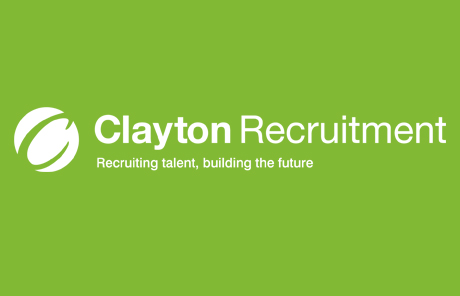
Is Having A PSL An Advantage For Your Business?
- September 15, 2023
One factor that all businesses face at some point in their future, is the potential disruption that comes with a key individual leaving – be that for another role, or as they head towards retirement.
And whilst you hopefully have a succession plan and strategy in place ready to put into action, realistically it could take several weeks or months before you find a suitable candidate that fits the bill on all fronts.
Enlisting the help of a specialist recruiter will no doubt pay dividends here, and as part of your overall hiring strategy, is key to ensure you kick start the process and find a suitable candidate as soon as possible. This is of particular importance if the leaving employee will directly impact the bottom line with their impending departure.
But if you only hire every now and again, you will also have to go through the process of researching which agency is the most suitable. Which has a good reputation in the market? Which are likely to have a ready talent pool of individuals? Which offers the most ‘value’ when it comes to their fees and terms of business? This in itself can take much-needed time and a concerted effort to ensure the agency/agencies fully understand your business and your hiring requirements.
An Alternative Scenario?
Whilst the impact of a key individual leaving will still be felt by the company, you may be in a position as a business where the first step is to refer to your Preferred Supplier List (PSL). Depending on your prior relationship, the process is likely to be much more simplified, whereby you make contact and are instantly connected to a recruiter who knows you, your business, your ethos, and exactly what you need.
They may even have someone in the pipeline already who’s ideal for you.
Which of the above scenarios do you prefer to be in?
When you’re busy running your own business, we know all too well that time is often, money – and is a scarce resource in itself. Streamlining processes, without compromising on your requirements or cutting corners is key – and establishing a PSL may prove invaluable to get the best out of your hiring efforts.
In this blog, we look at the many benefits it can provide:
Time-Saving
We’re sure you’re well aware of how time-consuming and exhausting looking for the right candidate can be, and this is firstly, and perhaps most obviously, where having a PSL can be advantageous, as it will help to save you a potentially inordinate amount of time in the whole process – especially as you will have built up that trust with the recruiting agency already.
A good recruiter will have the network connections, industry knowledge and insider information on candidate movement in your specific area of expertise. They should also have a talent pool of passive candidates not presently searching for roles, but are already engaged and have built up their own trust of the recruitment brand as a credible resource when that sentiment changes. Agencies will also have a wider awareness of your competitors – who are also operating within the same market and are on a growth trajectory or looking to back-fill roles where individuals have left.
Having this at the fingertips helps to speed up the entire process and eliminate potential sources of stress for your recruitment team. Additionally, your PSL will provide you with a list of pre-approved agencies who have already committed to an agreed rate and service level, so there will be no need for further lengthy negotiations. As a result, what might take you weeks or even months to achieve can frequently be actioned in a matter of days.
Reduced Costs & Increased Value
Whilst recruitment costs are still a consideration, having a PSL in place can create a huge amount of value and a cost reduction for your business in a number of ways.
With a PSL in place, organisations can significantly expedite the end-to-end process. Instead of starting from scratch with supplier evaluations and negotiations each time a need arises, they can turn to their trusted list of pre-approved suppliers, saving valuable time and resources.
Such agreements often enable organisations to negotiate favourable terms and pricing with their preferred agencies too – especially if there is a volume of hires required (and an exclusivity clause in place).
Having gone through a vetting and selection process prior, companies will also ensure a level of quality and reliability in the services they procure. In turn, this mitigates certain ‘risks’, ensuring that the agency in question adheres to legal, professional, and any regulatory standards – and ultimately negates the likelihood of costly disruptions down the line.
A Re-Focus On Core Competencies
Embracing a Preferred Supplier List empowers companies to redirect their invaluable internal resources towards honing and excelling in their core competencies – whether that’s in a HR or hiring capacity, or if the key employees within the business are involved in the wider process.
This strategic move frees them from the time-consuming and resource-draining tasks associated with advertising, CV reviewing, shortlisting, negotiation, and management of the process. As a result, teams can channel their expertise and energy into innovating, strategising, and delivering exceptional value to their clients and stakeholders.
In this way, a PSL becomes not just a cost-saving measure but a catalyst for organisational growth and excellence, ensuring that the company remains agile and competitive in its area of expertise.
Continuous Improvement In Your Supply Chain
PSLs offer a dynamic framework that goes beyond initial supplier selection and contract negotiation. They facilitate a culture of continuous improvement among suppliers. This ongoing process involves regular performance evaluations and feedback mechanisms that encourage suppliers to consistently enhance their quality and service levels.
Through periodic assessments and audits, businesses will identify areas where suppliers excel and areas in need of improvement. This data-driven approach allows for constructive dialogue, helping agencies continually understand the business’s evolving needs and expectations.
Through periodic assessments and audits, businesses will identify areas where suppliers excel and areas in need of improvement. This data-driven approach allows for constructive dialogue, helping agencies continually understand the business’s evolving needs and expectations.
Moreover, the feedback loop in a PSL fosters innovation. Agencies will proactively propose new ideas, technologies, or process enhancements that can benefit the business and impact the hiring strategy more widely. These innovations can lead to more efficient operations, cost savings, and better outcomes, all of which contribute to a stronger partnership for all parties.
PSL Vs. Exclusivity
A PSL and an exclusivity agreement are two distinct but equally valuable arrangements that a business can employ to optimise its supplier relationships and get the most out of these for a successful outcome; namely, a new hire that is a great fit on all fronts.
If a PSL is not a desired route, an alternative option would be an exclusivity or agreement granted to a single agency with exclusive rights to hire for a particular role/roles.
While both options offer advantages, they do serve different strategic purposes. A PSL provides flexibility by offering a range of pre-vetted options for various needs, promoting competition and potentially lower costs. Exclusivity agreements, on the other hand, foster deeper, exclusive partnerships with agencies, which can be beneficial when a specific hire is needed, ensuring consistency and a focused supplier relationship.
Ultimately, the choice between a PSL and an exclusivity agreement depends on the business’s specific needs, priorities, and the nature of its supplier relationships. Both approaches aim to enhance efficiency, reduce risk, and create value, but they do so through different means.
In Conclusion
If you are responsible for hiring within your company – either wholly, or as part of your role, one of the choices you have as part of your hiring strategy is whether you go it alone, or enlist the services of a recruitment specialist.
This decision may be based on a number of variables including budget, speed (the need to get the position filled quickly), and the potential scarcity in the market of the hire(s) in question.
External factors may also impact the decision. The current market, still impacted by headwinds from the pandemic, is undeniably tough as we enter a new year against a backdrop of economic uncertainty and a much-publicised skills shortage. Attracting (and then retaining) talent can be arduous at the best of times, but balancing squeezed budgets, keeping existing staff engaged, and still focusing on growth and expansion is certainly a big ask for companies who also have the ‘day job’ to do.
Consideration of a PSL, an exclusivity agreement, or even a retained recruitment service is worth doing – each with their own unique benefits and advantages but all focused on a collaborative approach to sourcing the next hire for your company.
About Clayton Recruitment
Clayton Recruitment has been partnering with organisations across the country since 1989 and during that time has built up an excellent reputation for trust and reliability.
With specialist divisions covering Commercial, Financial, and Engineering appointments, on a permanent basis.
If you are looking for your next career move, we can help. Call us on 01772 259 121 or email us here.








